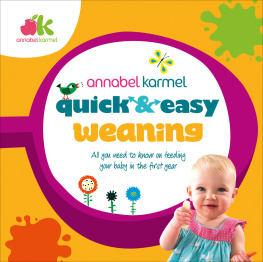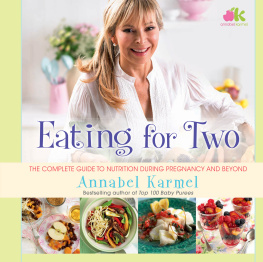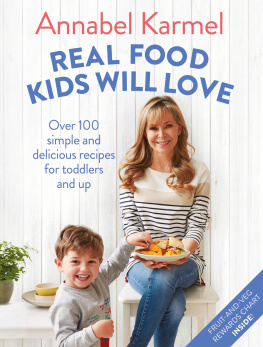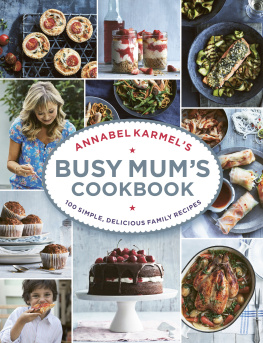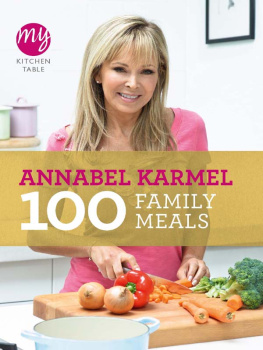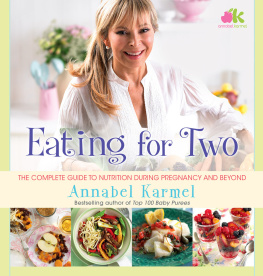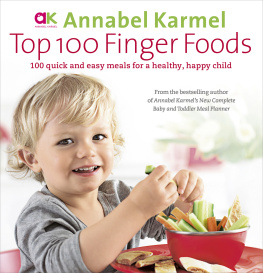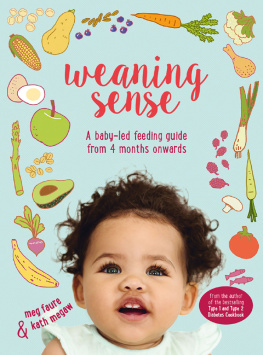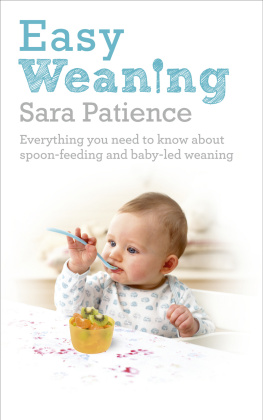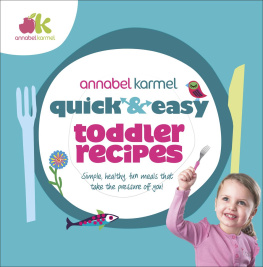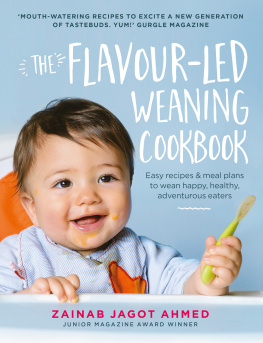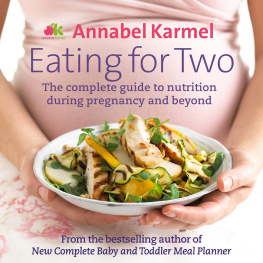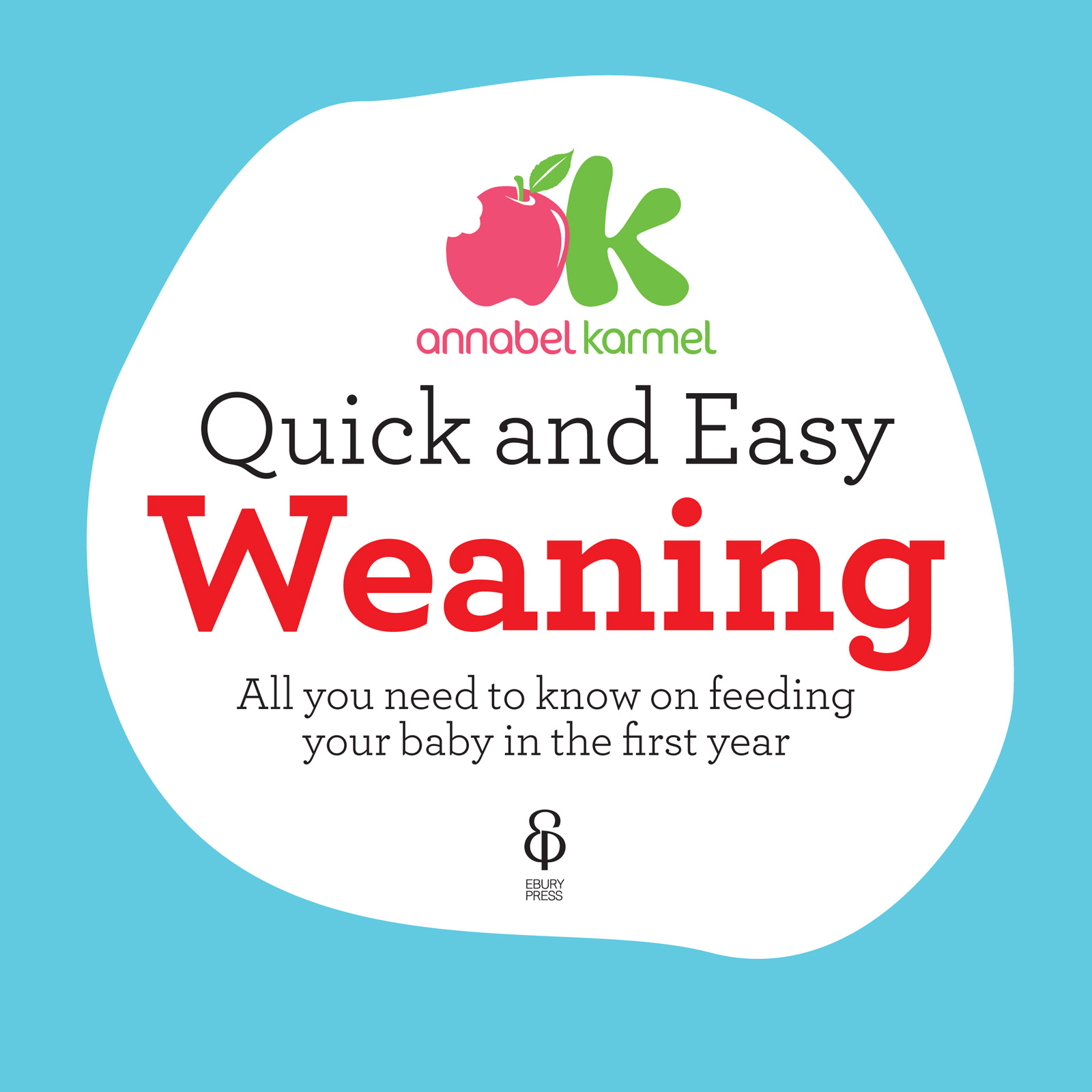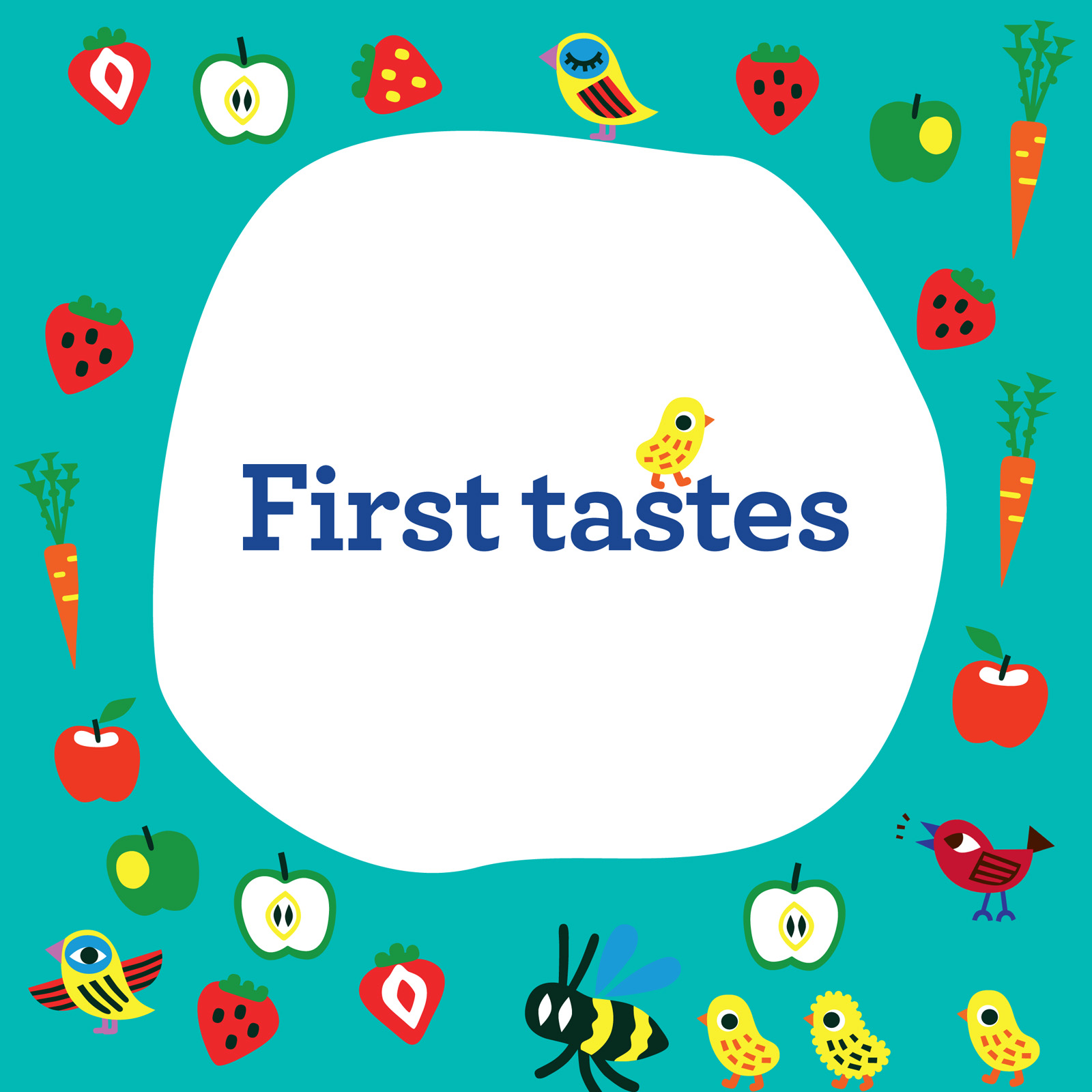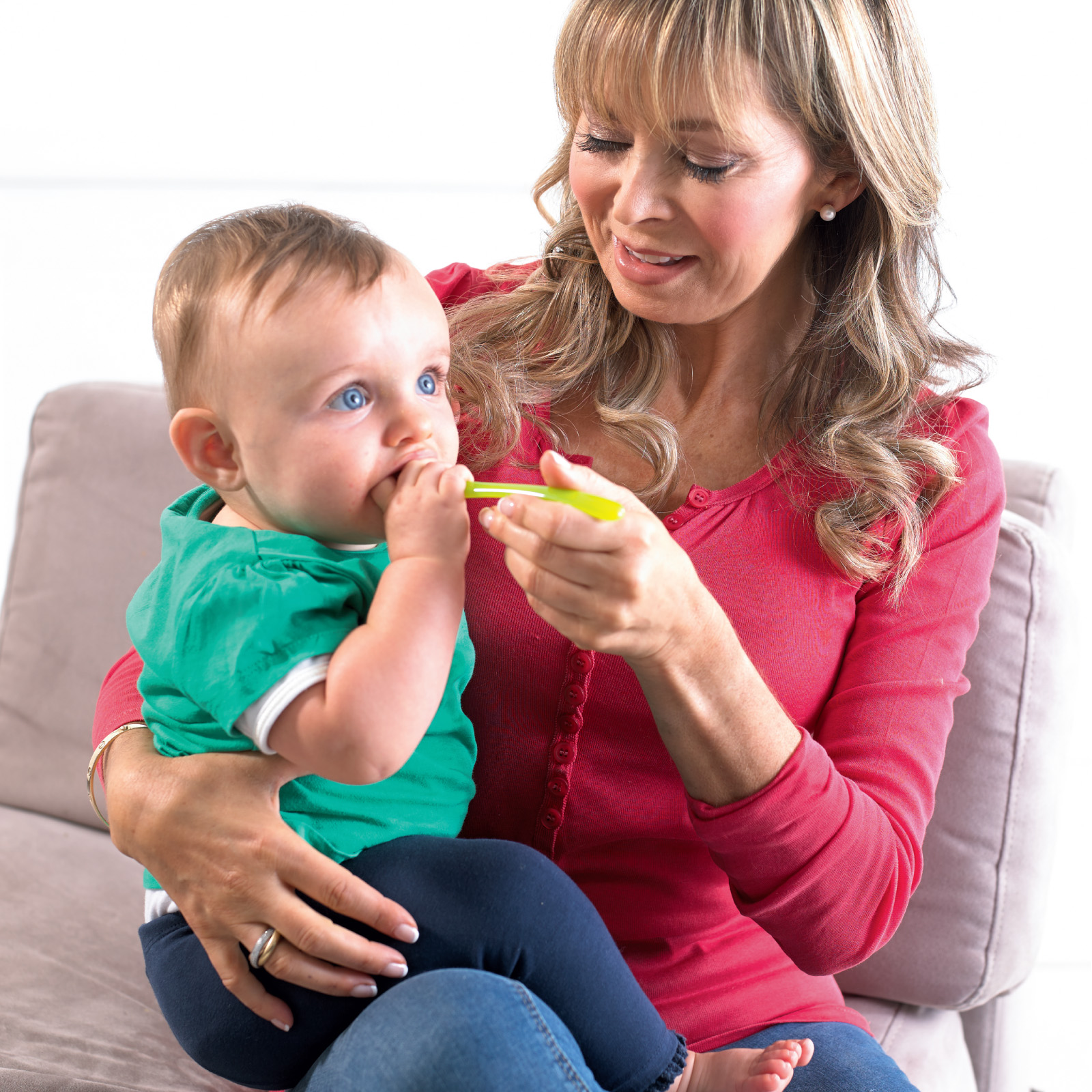Contents
Recipe List
Why wean your baby?
The transition to solid food from a diet of milk, whether breast or formula, is a gentle process that is largely dictated by your babys needs and ability to eat foods of a different texture. Introducing solids is about offering new tastes and textures and adding bulk to your babys diet, but it also makes sense to use this time to get them into good, healthy food habits.
Weaning can seem quite overwhelming when you are bombarded with information on when to start, what to feed and how much, as well as advice on how to identify and cope with allergies or food intolerances. If there is a history of allergy in your family or your baby suffers from eczema it is advisable to try and breastfeed for the first 6 months. My aim in this book is to guide you through each step of feeding your baby so that the process is calm and doesnt cause you or your baby any anxiety. The delicious recipes here will take you through every stage of their development, offering ideas that will appeal to every taste and keep broadening their food horizons.
It is in early childhood that eating habits and tastes are formed for life; babies grow more rapidly in their first year than at any other age, and so between 6 and 12 months you have a fantastic opportunity to get your baby to eat a variety of different foods and encourage them to try new flavours and textures.
When to wean
Introducing food is a big milestone in a babys life, and it is not a fixed set of steps; some babies are ready to wean earlier than others and love the experience of trying new foods, whilst other babies take a while to adjust to this new way of eating.
Current government guidelines suggest that babies be introduced to solids from the age of 6 months. You might prefer to start before this if you think your baby is ready earlier, but do bear in mind that it is important not to give food before 17 weeks, as a babys digestive system has not yet fully matured at that age. From 17 weeks onwards, many babies can tolerate first tastes, so if your baby is ready you can begin to gradually introduce solids.
It is important that your baby has begun to be introduced to solid foods by the age of 24 weeks, even if your baby was born prematurely. It is particularly important that babies born early wean no later than 6 months to help them get the extra nutrition they need to gain weight, and also because they have missed out on vital nutrients like iron that start to be stored in your babys body in the last months of pregnancy.
The reasons for not delaying weaning until after 6 months are:
A babys iron reserves start to deplete at around 6 months, and breast milk and formula no longer provide iron and vitamin D at the levels your baby needs to develop healthily. Iron is an important factor in brain development, and can be found in food sources such as red meat, pulses and green leafy vegetables.
Eating solid foods helps your babys mouth and tongue develop and prepare for speaking.
Up to the age of 6 months, babies readily accept new tastes. If you leave it too late, some babies can become resistant to accepting new foods.
Your babys kidneys can now cope with solid food, and has the digestive enzymes required to break it down and extract the nutrients needed.
Breast and formula milk are still very important at this stage, though; they are a complete food for the first six months, providing them with the nutrients they need as well as liquid to keep them hydrated. Your babys usual milk should continue to be given until they are 12 months old, but always after solids so that it does not fill them up before they eat.
How do I know if my baby is ready to wean?
Your baby will let you know when they are ready to move on from milk, you just need to be able to spot the signs! Good indicators are that they may be hungrier than usual and no longer satisfied by their usual breast or bottle feed, or possibly wake in the night when they previously slept through. Often they will start to show more interest in what you are eating and may even pretend to chew as they watch you eat. Having said that, babies often go through a growth spurt between 3 and 4 months and so sometimes they wake more at night because they are hungry and demand more frequent feeds. Dont take only this as your cue that they are ready for solids, look for a few more signs first. Babies should be holding their heads up and have fairly good control of their movements before they can eat solids.
Getting ready to wean
The first time you feed your baby solids can be a nerve-wracking experience. So find a relaxing, quiet place with no distractions and take it slowly, following your babys pace. Every baby is different; some jump at the opportunity of trying new tastes and textures, while others may be more reluctant, but both of you will soon get the hang of it and enjoy trying new flavours.
Offering first foods
First foods should be simple: a single fruit, vegetable or cereal is best. Choose foods that are unlikely to cause an allergic response (see ), and fruit that is ripe and full of flavour.
Consistency: First pures should be semiliquid, almost like a yogurt consistency, and smooth, with no surprise lumps, as this can be offputting for babies.
Vegetables: Sweet root vegetables make ideal first foods they are naturally sweet and will pure to a lovely smooth consistency. Try sweet potatoes, carrots, parsnips, butternut squash, pumpkin or swede. These bright orange vegetables are packed with betacarotene, which is essential for your babys growth, and to encourage healthy skin, good vision and strong bones.
Fruits: Try ripe apple, pear, banana, avocado, papaya, peach, melon and mango.
Cereals and grains: Begin with gluten-free cereals such as baby rice, millet and quinoa (in case your baby has a gluten intolerance).
BEST FIRST FOODS
Carrot
Sweet potato
Butternut squash or pumpkin
Swede
Parsnip
Apple
Pear
Banana
Papaya
Peach
Mango
Avocado
Baby rice
Millet
Raw or cooked?
Raw fruit and vegetables contain a great quantity of nutrients, but more than half of these can be lost in the cooking process, depending on how you cook them. That said, some vegetables, such as carrots and tomatoes, are actually better for us when cooked because we absorb more nutrients from them in that state. However, although raw foods are more nutritious, they are also higher in fibre, which can cause problems for little tummies as they cant properly digest it and may become bloated. So the best combination is to introduce a few soft, raw fresh foods (such as avocado and banana), but also lots of cooked vegetables until their weaning is established. (See the recipes on for the best first fruits and veg for your baby.)
No-cook pures
Simple pures made from fruits such as banana, avocado and papaya are fantastic first foods because not only do they simply require mashing, and so are very simple to prepare, but theyre also ideal for taking out and about as they do not need preparing and packaging up before you go.

